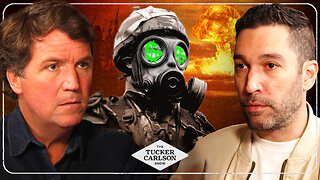life in space | What Astronaut Do in Space Station ?
Microgravity Effects: Life in space is characterized by microgravity, which can have various effects on the human body. Astronauts can experience muscle atrophy, bone density loss, and fluid shifts. These effects require astronauts to engage in regular exercise to counteract the negative impact on their bodies.
International Space Station (ISS): The ISS is a habitable space station orbiting Earth, where astronauts from various countries live and work for extended periods. It serves as a platform for scientific research, technology development, and international cooperation in space exploration.
Space Food: Astronauts eat specially prepared space food due to the limitations of microgravity. Foods are often dehydrated, vacuum-sealed, or processed to ensure they are lightweight and can be stored for long periods. However, efforts are continuously made to improve the taste and variety of space cuisine.
Sleeping in Space: Astronauts sleep in small sleeping quarters, often resembling small cabins or sleeping bags attached to walls. Since there's no gravity, they can sleep in any orientation, even standing up, as long as they're secured in place.
Radiation Exposure: Space travelers are exposed to higher levels of cosmic and solar radiation compared to Earth's surface. This exposure can increase the risk of long-term health issues, such as cancer, and is a significant concern for extended space missions.
Space Suits: Spacewalks or extravehicular activities (EVAs) require astronauts to wear space suits that provide life support, temperature regulation, and protection from the vacuum of space and micrometeoroids.
Communication: Communication in space involves the use of radio waves, as sound cannot travel in the vacuum of space. There can be communication delays due to the time it takes for signals to travel between Earth and spacecraft.
Hygiene and Waste Management: Managing hygiene and waste in space is a crucial aspect of space life. Astronauts use waterless shampoo, and waste is carefully collected and processed to prevent contamination of the spacecraft's environment.
Mental and Emotional Challenges: Spending extended periods in isolation and confinement can lead to psychological challenges for astronauts. Space agencies focus on providing psychological support and strategies to maintain mental well-being.
Growing Food: Research is ongoing into the feasibility of growing food in space. The ability to cultivate plants could provide fresh food, improve air quality, and offer psychological benefits to astronauts.
Space Tourism: With the advancement of technology, space tourism is becoming a reality. Private companies are working on spacecraft to take civilians on suborbital and potentially orbital journeys.
Long-Duration Missions: Missions to other planets or moons would involve much longer travel times and pose significant challenges in terms of life support, radiation protection, and psychological well-being.
These facts offer just a glimpse into the complex and fascinating world of life in space. As technology continues to advance, our understanding of and capabilities for living in space will also evolve.
-
 1:40:05
1:40:05
The Quartering
14 hours agoWhy Modern Women Suck w/Hoe_Math
79.7K40 -
 1:43:26
1:43:26
Robert Gouveia
10 hours agoGarland SHAKING over CONTEMPT; Congressional MELTDOWN; Fani RAGES at Senate; Tish INVESTIGATED
73.1K89 -
 1:48:05
1:48:05
2 MIKES LIVE
12 hours ago#67 2ML Open Mike Friday, we have a LOT to talk about!
43.2K4 -
 2:27:40
2:27:40
WeAreChange
12 hours agoIt’s NOT Just The Frogs — They’re Turning All The Animals GAY??
80.3K37 -
 1:02:40
1:02:40
In The Litter Box w/ Jewels & Catturd
1 day agoPolice State | In the Litter Box w/ Jewels & Catturd - Ep. 570 - 5/17/2024
90.8K70 -
 1:57:17
1:57:17
Twins Pod
12 hours agoTwins Pod - Episode 13 - Tim Kennedy: Seals Vs Green Berets, Tigers Vs Bears, & Israel Vs Palestine
78.1K37 -
 2:21:43
2:21:43
Tucker Carlson
1 day agoDave Smith: Russia, Israel, Trump & the Swamp, Obama, and the Media Attacks on Joe Rogan
170K427 -
 3:23
3:23
Stephen Gardner
11 hours agoNew Trump Testimony DESTROYS Michael Cohen HUSH MONEY case!
44.7K25 -
 39:11
39:11
Line Drive Podcast
12 hours agoHarrison Butker is the left's new Enemy #1!
41.8K14 -
 7:10:22
7:10:22
Turtleboy Daily News
18 hours agoKaren Read Trial Day 14
75.3K28